Three months before winning $17,500 at the 2018 UC Davis Big Bang! competition, Denise Bronner learned her father had been diagnosed with multiple myeloma. Her startup, Anu Snacks, which produced snack bars from spent beer grain, was put on hold.
Seven years later, Bronner’s father is in remission, and her path has brought her back to UC Davis as a co-sponsor for the social entrepreneurship award for this year’s Big Bang, which is celebrating its 25th anniversary.
“I received the award, now I’m able to give one,” Bronner says. “It’s a full-circle moment.”
Today, the awards ceremony at the UC Davis Conference Center honors 19 finalist teams with $100,000 in grants awarded to winners. Organizers have been highlighting past participants throughout the year in celebration of this quarter-century milestone.
For every founder that participates in the Big Bang, several of which have been spotlighted in Comstock’s Startup of the Month column and other stories (including Anu Snacks in September 2018), no path forward looks the same. Some businesses continue to excel beyond the Big Bang, such as Japa (our January 2019 Startup of the Month), a smart parking startup that won the first-place prize in 2018. Origin Materials, a sustainable plastics company (featured in a December 2024 article) — which participated in the 2008 Big Bang but didn’t win — went public in 2021 with an estimated value of $925 million and has since had to make adjustments while building a first-of-its-kind plant.
For other founders, the competition becomes a launchpad that opens up different opportunities. After Anu Snacks, Bronner took a position at Johnson & Johnson. Last year, she pivoted out of corporate to start Empactful Ventures, a strategic healthcare consulting agency, which she says earned six figures in year one.
“Not only did the Big Bang give me courage and confidence,” Bronner says, “but it also opened my eyes to ways I can pull science into different industries.”
Shifting priorities
In 2000, the annual competition was started by MBA students. A few years later, the Mike and Renee Child Institute for Innovation and Entrepreneurship at UC Davis took the wheel.
After a decade of involvement, Joe DiNunzio, the institute’s executive director, has seen the competition evolve in various ways. For instance, more entrepreneurs have prioritized purpose over profits. Founders want to solve real issues across industries, he says, from fighting climate change to fixing the food system.
EpiSense, our August 2024 Startup of the Month, won the $25,000
prize at the 2024 Big Bang for its wearable device that alerts
patients if a seizure seems imminent.

Looking ahead, he predicts even greater attention to major global challenges from up-and-coming entrepreneurs. But this doesn’t mean margins won’t matter, DiNunzio adds: “You can’t build a sustainable operation if you don’t bring in more than you spend.”
Over the years, DiNunzio has also noticed more entrepreneurial teams blending disciplines: engineering and biology, veterinary and human medicine, sustainability and transportation. Solving complex puzzles, he says, requires diverse perspectives and expertise.
Biomedical tech is also trending up as a way to tackle long-term problems. Take EpiSense (August 2024 Startup of the Month), for example. Founded by a UC Davis duo, this startup has been racking up awards, including the $25,000 prize at the 2024 Big Bang for its wearable device that alerts patients if a seizure seems imminent.
Of course, there is no discussion in 2025 without mentioning AI. But DiNunzio sees emerging AI startups not trying to compete with tools like ChatGPT. Instead, these founders think about how AI can “enhance or extend efficiencies and effectiveness of humans,” he says, which could make a real impact in fields such as education and healthcare.
Unlocking opportunities
In the future, Bronner plans to revisit her award-winning startup from 2018. With a deep knowledge of pitching and business operations, she aims to pursue a different route.
Right now, she’s continuing to build her consulting practice. And being in a position to give back financially and help other people pursue their dreams is vital at this moment, she says.
“We’re at a time where creativity and innovation are desperately needed across ecosystems,” she says. “If there are ways to encourage that at a business competition, we really should.”
With all the funding cuts, job losses and overall economic uncertainty, Bronner believes now is the time to champion entrepreneurial thinkers. Support is especially critical for mission-driven companies serving overlooked communities that have been written off as “non-profitable.”
“What that signals is there’s a lack of value for different groups,” Bronner says. “If you’re trying to start a company as a founder and you’re told it’s not a worthy investment, that can crack your spirit. I’m hoping my sponsoring can help people feel invigorated and know that there’s money there.”
–
Subscribe to the Comstock’s newsletter today.
Recommended For You
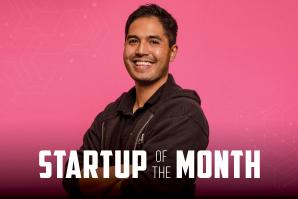
Startup of the Month: Japa
UC Davis grads smarten up parking lots
As part of an entrepreneurship course at UC Davis, Mathew Magno was instructed to come up with a problem to solve. He didn’t think twice: Magno wanted to solve the nightmare that is finding a place to park.
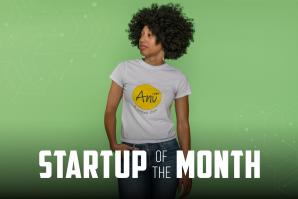
Startup of the Month: Anu Snacks
Crafting a snack bar from spent grain
Anu Snacks produces snack bars from spent beer grain, mixed with dried fruit and nuts with various coatings. The idea was a hit, winning $17,500 in prizes this year at the UC Davis Big Bang! competition for entrepreneurship.
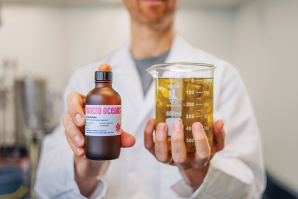
The Power and Potential of Seaweed
From keeping oceans healthy to being used as an alternative to plastics, researchers believe seaweed has a multitude of uses
Nearly 2,000 miles northwest of Sacramento, Matthew Perkins rode a boat out into the Gulf of Alaska and saw nothing but endless potential for growth. “It’s kind of overwhelming how much opportunity there is,” he says. “You’re on the water, snow-capped mountains in the backdrop, you look down and see this incredible biomass growing. It’s literally the bounty of nature.”
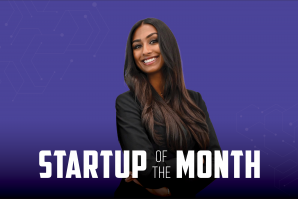
Startup of the Month: EpiSense
Device to alert patients, contacts of imminent epileptic seizures
Getting diagnosed with epilepsy changed not only Jaya Athuluru’s life but her career path. With co-founder Simran Lallian, Athuluru developed EpiSense, a wearable device that detects irregular spikes in electrical brain activity and alerts patients and emergency contacts five minutes prior to an episode if a seizure seems imminent.
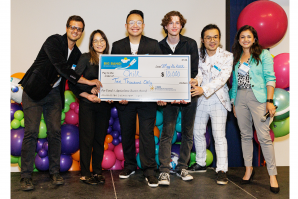
Startups Make a Splash at the UC Davis Big Bang Business Competition
Prizes worth more than $100,000 were distributed at the 22nd annual awards ceremony
The competition’s inventions included a medical device that detects fetuses’ oxygen levels, a machine-learning tool that analyzes livestock health and a healthy take on boba milk tea.



